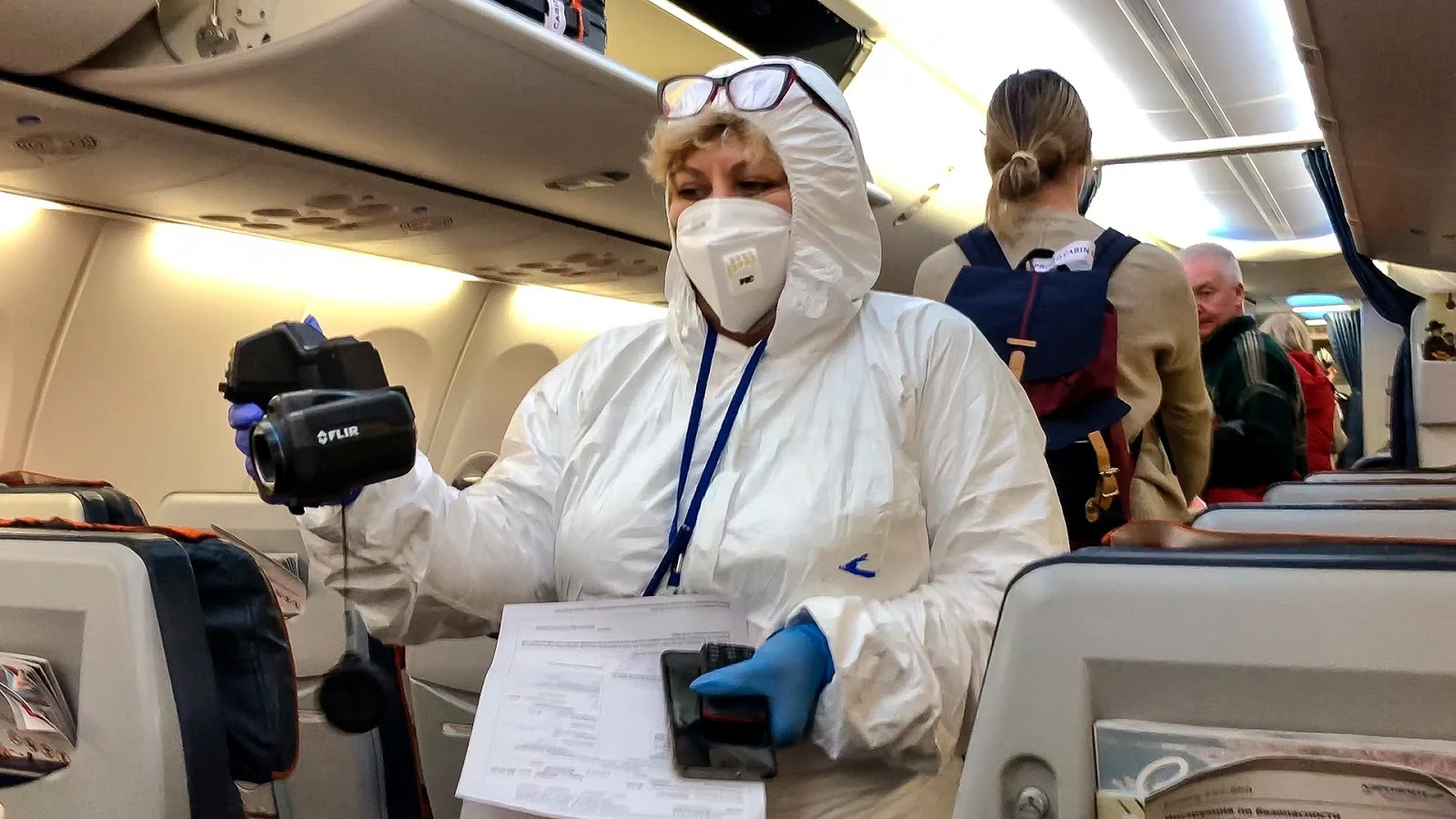Training for the evacuation of passengers with suspected coronavirus, Chelyabinsk airport, Feb. 5, 2020. Nail fattakhov/TASS The count...
 |
| Training for the evacuation of passengers with suspected coronavirus, Chelyabinsk airport, Feb. 5, 2020. Nail fattakhov/TASS |
The country has drastically reduced air traffic with Europe and Asia, and tourists returning to Russia are told to stay home in quarantine. The WHO has declared the coronavirus outbreak a pandemic. Currently, there are over 127,000 infected people worldwide, and this number is growing. What measures are being taken in Russia to stop the spread of the virus?
 |
Sheremetyevo airport, March 10, 2020. Moscow Health Department/TASS
|
 |
| A Russian medical expert checks passengers arriving from Italy inside the plane at Sheremetyevo airport, Moscow, March 8, 2020. AP |
Not a good time for a vacation abroad
The number of flights to China, South Korea, and Iran has decreased drastically: Aeroflot's schedule includes daily flights only to Beijing, Shanghai, and Seoul, as well as weekly flights to Tehran. Other airlines temporarily suspended flights to these countries. From March 13, restrictions have been imposed on flights to Germany, Italy, Spain, and France, except for Rome, Berlin, Munich, Frankfurt, Paris, Madrid, and Barcelona. Flights to these cities will only be from Sheremetyevo Airport’s Terminal F.
 |
At the airport. Moskva Agency
|
Foreign tourists canceling
Inbound tourism in Russia is also facing a crisis. Since March 13, Russia has stopped issuing tourist visas to Italian citizens. Earlier, it ceased tourist visa issuance to China and Iran. Future tourists are also staying home. According to the Association of Russian Tour Operators, the cost of canceled tours from March to May amounted to more than 500 million rubles (about $7 million), and foreigners, in fact, have stopped booking tours to Russia for the summer.
 |
An ambulance at the Moscow Region. Stanislav Krasilnikov/TASS
|
Ban on events of more than 5,000 people
So far, only extracurricular group student activities, such as trips to museums and exhibitions, have been cancelled, and school kids should take their temperature daily. The sick are sent home.
Many companies have canceled foreign business trips, and introduced additional measures to disinfect their offices. Some allow employees to work remotely from home.
 |
Sanitarium disinfection after COVID-2019 quarantine in the Tyumen region, Feb. 21, 2020. Maxim Slutsky/TASS
|
Workers need this in order to prove to their employer that they are truly ill. And if they have a fever or cough then they need to call an ambulance. If the test for the virus is positive, then the person will be sent to an infectious disease hospital. If using any of Russia Beyond's content, partly or in full, always provide an active hyperlink to the original material.




